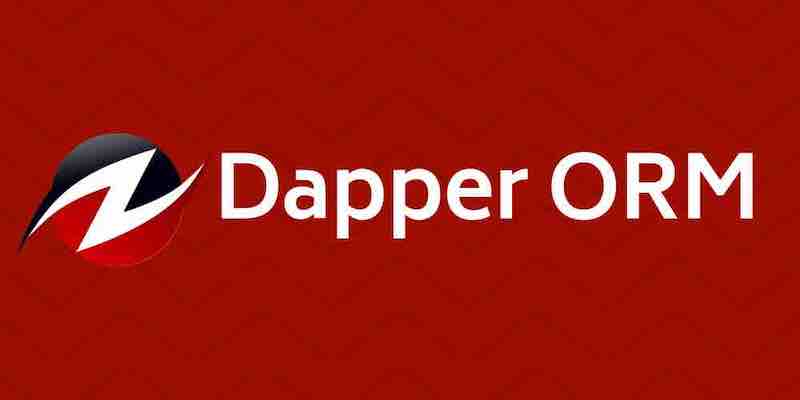What Is Dapper?

Dapper is an open-source micro-ORM (Object-Relational Mapper) for dotNET. It is designed to be lightweight and fast and is often used as an alternative to larger ORMs such as Entity Framework.
An ORM tool simplifies interacting with a database from within an application. It does this by mapping objects in the application to rows in a database table, allowing developers to work with the data using familiar object-oriented concepts rather than having to write raw SQL queries.
Dapper is designed to be simple and easy to use and provides many features to make it easy to work with a database from within a .NET application:
- Fast execution: Dapper is designed to be quick and efficient and is often shorter than other ORMs due to its lightweight design.
- Flexibility: Dapper allows developers to write custom SQL queries if desired and provides support for stored procedures.
- Supports multiple databases: Dapper supports many databases, including MySQL, PostgreSQL, and SQL Server.
Dapper is a popular and widely used micro-ORM for .NET that is well-suited for developers who want a lightweight and fast tool for interacting with a database.
What Is ORM?
ORM stands for Object-Relational Mapping. This technique lets you map data between an object-oriented programming (OOP) language and a relational database. Instead of writing SQL queries, you can use OOP concepts like classes and objects to interact with your database.
ORMs create a layer of abstraction between your application and the database. This layer translates the OOP concepts into SQL queries so you can work with your data naturally in your programming language.
Many different ORMs are available, each with its strengths and weaknesses. Some popular ORMs include Hibernate, JPA, and Django ORM.
The main benefits of using an ORM include:
- Increased productivity: ORMs can help you write code more quickly and easily by abstracting away the details of SQL.
- Improved code readability: ORMs can make your code more readable and maintainable using OOP concepts familiar to most developers.
- Reduced database dependency: ORMs can help you reduce your reliance on the database by making it easier to change your database schema without modifying your application code.
However, there are also some drawbacks to using ORMs:
- Performance overhead: ORMs can add performance overhead because they must translate OOP concepts into SQL queries.
- Lack of flexibility: ORMs can sometimes be inflexible because they may not support all of the features of your database.
- Learning curve: ORMs can have a steep learning curve, especially for developers unfamiliar with SQL.
ORMs can be a powerful tool for developers who need to interact with relational databases. However, weighing ORMs’ benefits and drawbacks before deciding whether to use them is essential.